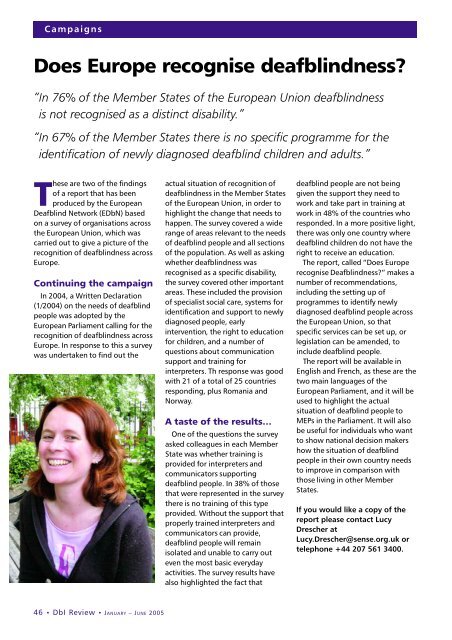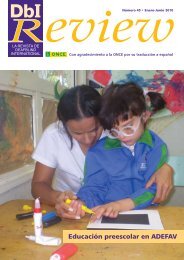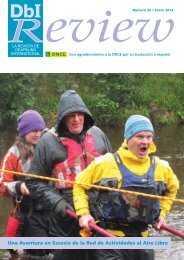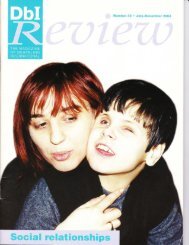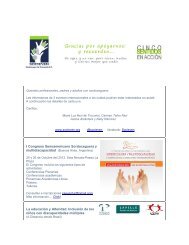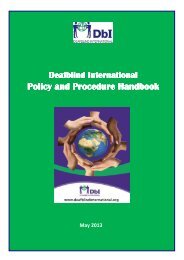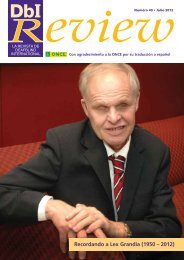DbI Review 35 - Deafblind International
DbI Review 35 - Deafblind International
DbI Review 35 - Deafblind International
- No tags were found...
You also want an ePaper? Increase the reach of your titles
YUMPU automatically turns print PDFs into web optimized ePapers that Google loves.
C a m p a i g n sDoes Europe recognise deafblindness?“In 76% of the Member States of the European Union deafblindnessis not recognised as a distinct disability.”“In 67% of the Member States there is no specific programme for theidentification of newly diagnosed deafblind children and adults.”These are two of the findingsof a report that has beenproduced by the European<strong>Deafblind</strong> Network (EDbN) basedon a survey of organisations acrossthe European Union, which wascarried out to give a picture of therecognition of deafblindness acrossEurope.Continuing the campaignIn 2004, a Written Declaration(1/2004) on the needs of deafblindpeople was adopted by theEuropean Parliament calling for therecognition of deafblindness acrossEurope. In response to this a surveywas undertaken to find out theactual situation of recognition ofdeafblindness in the Member Statesof the European Union, in order tohighlight the change that needs tohappen. The survey covered a widerange of areas relevant to the needsof deafblind people and all sectionsof the population. As well as askingwhether deafblindness wasrecognised as a specific disability,the survey covered other importantareas. These included the provisionof specialist social care, systems foridentification and support to newlydiagnosed people, earlyintervention, the right to educationfor children, and a number ofquestions about communicationsupport and training forinterpreters. Th response was goodwith 21 of a total of 25 countriesresponding, plus Romania andN o r w a y.A taste of the results…One of the questions the surveyasked colleagues in each MemberState was whether training isprovided for interpreters andcommunicators supportingdeafblind people. In 38% of thosethat were represented in the surveythere is no training of this typeprovided. Without the support thatproperly trained interpreters andcommunicators can provide,deafblind people will remainisolated and unable to carry outeven the most basic everydayactivities. The survey results havealso highlighted the fact thatdeafblind people are not beinggiven the support they need towork and take part in training atwork in 48% of the countries whoresponded. In a more positive light,there was only one country wheredeafblind children do not have theright to receive an education.The report, called “Does Europerecognise <strong>Deafblind</strong>ness?” makes anumber of recommendations,including the setting up ofprogrammes to identify newlydiagnosed deafblind people acrossthe European Union, so thatspecific services can be set up, orlegislation can be amended, toinclude deafblind people.The report will be available inEnglish and French, as these are thetwo main languages of theEuropean Parliament, and it will beused to highlight the actualsituation of deafblind people toM E Ps in the Parliament. It will alsobe useful for individuals who wantto show national decision makershow the situation of deafblindpeople in their own country needsto improve in comparison withthose living in other MemberS t a t e s .If you would like a copy of thereport please contact LucyDrescher atLucy.Drescher@sense.org.uk ortelephone +44 207 561 3400.4 6 • <strong>DbI</strong> <strong>Review</strong> • JA N UA R Y – JU N E 2 0 0 5


